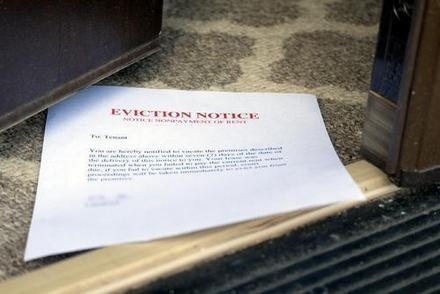Naperville, IL 60563
Tenant-Landlord Disputes - Actions That Can and Cannot Be Taken by a Landlord or Tenant
 While most tenant-landlord relationships end with little fanfare, there are situations in which one must take some form of action against the other. For example, a landlord that has denied a tenant of suitable living conditions may be held legally liable for their actions. In contrast, a tenant who has failed to pay their rent may be evicted through legal action. The following information explains those actions, and it provides details on actions that cannot be taken by either a landlord or tenant. You shall also learn how the assistance of an experienced attorney could improve the outcome of your landlord-tenant dispute.
While most tenant-landlord relationships end with little fanfare, there are situations in which one must take some form of action against the other. For example, a landlord that has denied a tenant of suitable living conditions may be held legally liable for their actions. In contrast, a tenant who has failed to pay their rent may be evicted through legal action. The following information explains those actions, and it provides details on actions that cannot be taken by either a landlord or tenant. You shall also learn how the assistance of an experienced attorney could improve the outcome of your landlord-tenant dispute.
Permitted and Restricted Actions for Tenants
When a landlord is in default of the lease, tenants have only a few permitted actions they can take. If the residence is uninhabitable, or if the landlord is refusing to make repairs that have caused the property to become unfit (Chicago only), the tenant may then file an official complaint with the landlord. While this is nothing more than a letter that states your concerns and intentions, should the landlord fail to make the appropriate repairs, it
Tenants may also file a small claim with the court to recover monetary damages that they may have lost (i.e. an unreturned security deposit).
Tenants cannot withhold rent from their landlord, nor may they deduct the cost of repairs from their rent without gaining approval from the landlord. Such actions could lead to recourse against the tenant, including and up to eviction from the property. To avoid such actions against you, contact an experienced attorney about your landlord-tenant dispute.
Permitted and Restricted Actions for Landlords
Like tenants, landlords have only a few options for recourse, should the tenant break their lease. The major difference though is that, as the property owner, one has more reasons for pursuing compensation for monetary damages. For example, a landlord may file a claim with the court to recover damage to their property and the early termination of a lease. However, a tenant cannot sue the landlord for loss of property if they are rightfully evicted.
Landlords cannot wrongfully evict a tenant. Instead, there must be a valid reason (i.e. breaking of the lease), and even then, there is a process that must be followed. Failure to do so could give the tenant legal ammunition that can be used against the landlord in various settings. For example, if the landlord has attempted to evict the tenant by shutting off their electricity, the tenant may then seek damages from the landlord.
Contact Our Naperville Landlord-Tenant Dispute Lawyers
If you or someone you know is experiencing an issue with a landlord or tenant, contact Lindell & Tessitore, P.C. for assistance. We can assist you in taking proper legal action to recover any damages that you may have experienced. Our seasoned Naperville landlord-tenant dispute lawyers may also be able to help you resolve matters before they get out of hand. Schedule your personalized, no-obligation consultation by calling 630-778-3818 today.
Sources:
http://www.law.siu.edu/selfhelp/info/property/Landlord-Tenant%20Rights%20in%20IL.pdf




